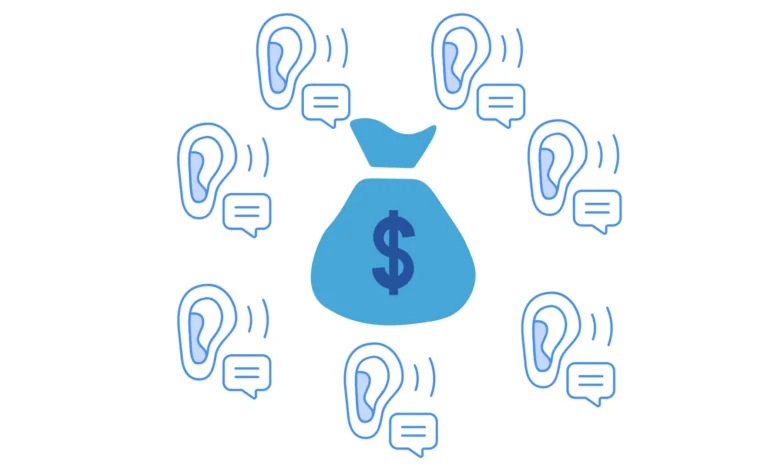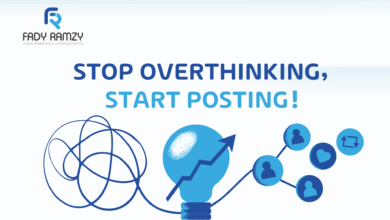Why Listening Skills Are Important In Sales

Excelling in sales has been a game-changer for me. It’s helped me grow my business and allowed me to help others do the same. Here, I’m going to share everything I’ve learned.
Listening skills are super important in sales, especially when you’re meeting with new prospects. Listening skills can help you end the conversation with a win-win situation, helping both the customer and closing the deal!
Avoid this common mistake: Starting sales meetings with a long introduction. About your company, product features, comparing with competitors, and then jumping into a sales pitch.
Listening Skills & Your Sales Conversation: Step-by-Step
Step1️⃣: Remember the psychology mantra: humans relate to humans!
Before a meeting, research the company thoroughly. Don’t just look at their website; dive into their social media. Analyze how people perceive them online through comments. Sometimes you would surprise even top management that you know about little details! This will give you a better understanding of the company and help you build a stronger connection.
Step 2️⃣: Before a meeting, invest time in researching the person you are meeting.
Utilize platforms like LinkedIn & Facebook to gain insights into their interests, needs, and desires. Learn about their professional and personal life.
Connect with them on LinkedIn prior to the meeting and shoot them a DM. This will highly likely make them check your profile. Which is when your solid professional personal branding efforts will pay off when they see you as an expert.
Step 3️⃣: When the meeting begins, shift your focus away from a traditional sales pitch.
Instead, initiate a friendly conversation. Drawing from the information you’ve gathered during your research. Your listening skills should shine here. For example, talk about parenthood if you’re both parents.
⚠️But, take care: it is important to be culturally sensitive. While some cultures appreciate personal anecdotes, others may find them inappropriate. It’s best to focus on shared professional experiences or industry-related topics. To establish a connection without being overly personal.
Remember, the key is to humanize the interaction. Present yourself as a helpful individual who genuinely cares about their needs. Rather than simply a salesperson looking to close a deal. This builds trust and works like magic!
It’s still not the right time to start selling or pitching!
Step 4️⃣: Asking the right questions is crucial in sales.
You can gain valuable insights into your prospect’s motivations through attentive listening skills. Simon Sinek’s “Start with Why” approach emphasizes the importance of understanding the underlying reasons behind someone’s desire for a product or service.
Consider the acronym “FCN-WD,” which stands for Fears, Challenges, Needs, Wants, and Desires. Whenever you’re in a sales meeting, try to identify, through your listening skills, one or more of these elements that are driving your prospect’s decision-making process. You can then tailor your sales approach to effectively address their concerns.
It’s important to confirm and affirm what the other person is saying. This tip for listening skills builds trust. It also demonstrates that you’re paying attention and understand their perspective.
Step 5️⃣: Share examples of how you helped others overcome similar challenges.
From your collection of success stories, choose the most relevant and compelling narratives. This helps your prospect envision themselves achieving similar results.
Now is the moment.
Step 6️⃣: Talk about your offer
This is when they will ask you about your product or service. Not to hear about the nitty-gritty details and features. But to hear about how your it can easily and quickly provide the transformation for them, just like it did with your previous customers.
Step 7️⃣: The pricing conversation
Rather than focusing solely on price negotiations, actively listen to the prospect’s concerns and needs. For instance, when a client expresses concerns about the price. You could respond by asking “Do you think it’s too expensive for you to solve this extreme problem in two months?” remind them how this is the investment that you are helping them make in order to solve their painful problem.
If they ask for discounts, or payment terms, question it and listen to understand what’s behind what they’re saying. You can then mention a relevant story of a previous happy client. It’s all about listening skills and storytelling, because this is purely human psychology.
Trust serves as a powerful currency in sales. When clients feel appreciated and listened to, they’re more likely to make a purchase, even if the price is higher than competitors.
Step 8️⃣: Closing the deal is the ideal case but it is not the end of the story!
If you close the deal right now and then your service or your offering is crappy then all the trust gets collapsed. If you consistently deliver on your promises and exceed expectations, you’ll cultivate loyal customers. Who not only repurchase but also become brand ambassadors, recommending your products or services to others.
Final thoughts:
If you’re into sales, whether it’s your job or a side hustle, diving into the psychology of sales is key. It’s not just about your product or service. It’s about understanding the underlying psychology of the sales interaction. Including harnessing the power of your listening skills.
Finally, do you want to build an effective personal brand today?
The “LinkedIn Influence Accelerator” is my course for founders, coaches, and communicators. It is crafted for professionals who want to create an effective personal brand that generates opportunities!
Start boosting your personal brand now!




